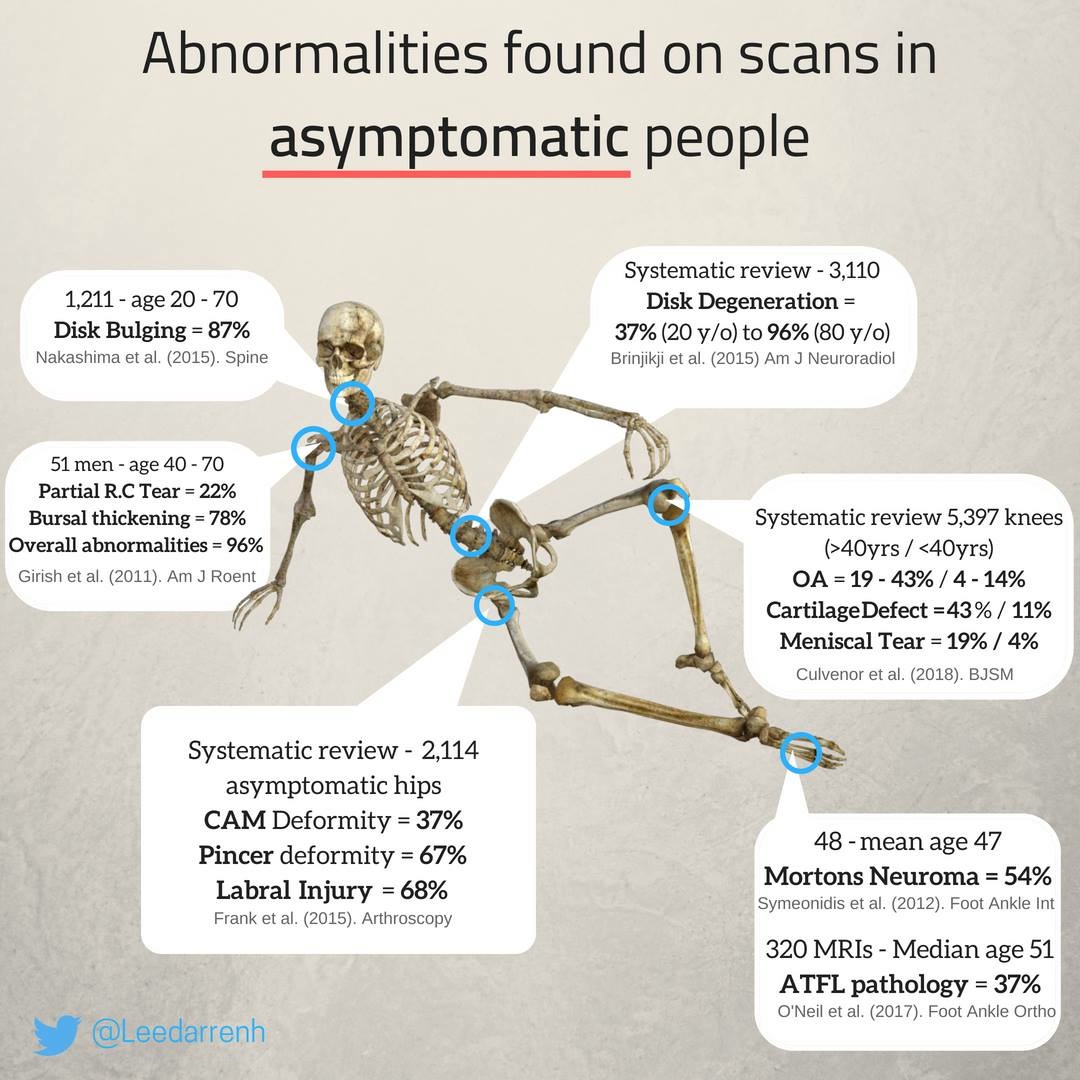WHY SCANS CAN BE MISLEADING
I am often asked “Do I need a scan?” by my clients. There are many circumstances where a scan of some description (X-ray, MRI, CT, Ultrasound) may be not only warranted, but essential. There are other times when the results can be at best irrelevant, but often, misleading.
The above graphic illustrates all of the different abnormalities that are present on scans that have no bearing on the patient’s condition. We see this time and time again with lower back pain. As can be seen, up to 87% of people who do not have back pain will have some sort of disc bulge. Therefore, if you do have back pain, a scan may reveal a disc bulge that is totally irrelevant to the presenting pain. If it correlates with your pain, then it does become relevant. Then the question is, does this finding on scan change your management in any way? In most cases, the answer is no. So why get the scan?
In a study of AFL footballers, clinical analysis performed better than MRI in estimating the time required to return to competition. Where the MRI and clinical prognosis differed the physiotherapy assessment was more accurate in every case. Again, so why get a scan? In the AFL’s case, it may be because they have a mountain of resources and people making decisions want to cross every T, so to speak. Evidence would suggest it makes no difference to the time out of the game for the player.
The simple answer as to whether you should get a scan?
If it will make a difference to your management, then go ahead. For example, if you are considering a cortisone injection into a nerve root sleeve in the lumbar spine, a CT of MRI would confirm if this was appropriate. If you suspected a ruptured ACL in your knee that would require surgery, then an MRI again, would confirm this. But remember, no scan is infallible, and it will never CHANGE your level of pain.
